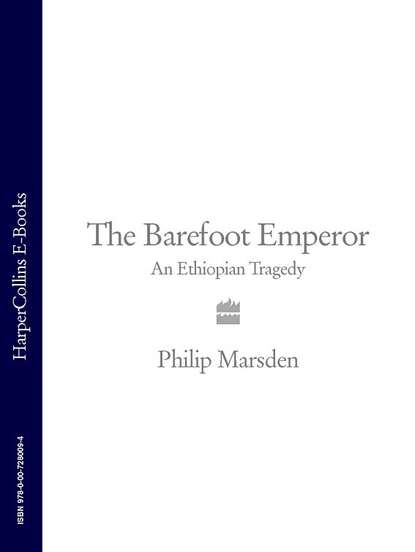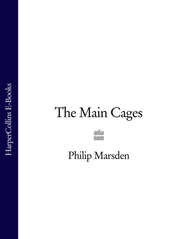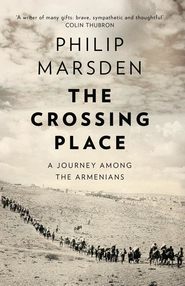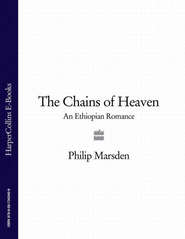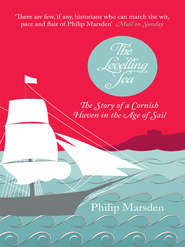По всем вопросам обращайтесь на: info@litportal.ru
(©) 2003-2024.
✖
The Barefoot Emperor: An Ethiopian Tragedy
Настройки чтения
Размер шрифта
Высота строк
Поля
‘So much Tewodros loved his country – I’m sorry, only to think of him makes me cry.’
I went to see an old friend. Teshome and I had travelled together years earlier, in the dark days of Colonel Mengistu. Teshome had always been a convincing and witty sceptic – sceptical about Mengistu and his Soviet backers, sceptical about Emperor Haile Selassie before them. Several years at an American law school had only made his suspicion of all power more articulate. The current regime was just as bad. But when it came to Tewodros, the scepticism vanished. ‘Tewodros?’ He paused, steepling his fingers in a courtroom gesture of reasoned thought. ‘What you have to understand, Philip, is that without him there would be no modern Ethiopia. Period.’
At the Institute of Ethiopian Studies, I thumbed through the library’s card index. It was all there – the Tewodros dramas, the Tewodros novels, the poems and the doctoral theses. One or two voices spoke out against him, but the predominant tone was hagiographic. Tsegaye Gabre-Medhin, who wrote a play called Tewodros in 1962, said that the ‘heroification’ of the emperor was necessary in part because foreign authors had so tarnished his image. He in turn accused the critical Ethiopian scholars of ‘meqegna’, jealousy, or needless iconoclasm.
Somewhere between the cult of Tewodros and its bloodless deconstruction lay the story itself. Only by reading the accounts of contemporary witnesses do the raw impressions of the time emerge. The European hostages left between them a mass of memoirs and letters. The Ethiopian side is less well represented, but there are a good number of contemporary Amharic letters, including those from Tewodros himself. Several Amharic chronicles too survive. Scholars have dismissed these for their eccentric chronology and distortions, but like the letters their viewpoint and language (even in translation) are wonderfully evocative. With the European accounts they conjure up a remarkable moment in history.
Until the middle of the nineteenth century, the world was an archipelago of loosely connected peoples. All over Africa and Asia, a pushy Europe was coming face to face with long-isolated nations. It is a process that has, in little more than a century, accelerated into a global frenzy of connectivity – skies criss-crossed by vapour trails, overhead cables pulsing with hypertext. In few instances were the initial meetings so bright and hopeful, or so swiftly shadowed, as they were in the 1850s and 1860s in Ethiopia.
For the ancient empire, tracing its roots to the reign of King Solomon nearly 3,000 years earlier, the episode was a bracing and too-sudden encounter with the modern age. For the British, reaching the height of imperial power, what began as an irksome diversion required in the end one of the most bizarre and elaborate military campaigns ever undertaken.
Yet for all its historical interest, the story belongs to the individuals – the European envoys, the adventurers and missionaries drawn into Tewodros’s thrilling and perilous world; the Ethiopians who followed him with such passion; and the emperor himself with his messianic appeal, his capricious brutality.
Few images survive of Tewodros and many of those that do are fanciful. The one that is pinned to my wall as I write this comes from the frontispiece of Hormuzd Rassam’s two-volume Narrative of the British Mission to Theodore, King of Abyssinia (1869). Said to have been a fair likeness, the lithograph shows him on a high rock on the edge of the Blue Nile. He is dressed simply, in cotton shamma and loose cotton trousers. His feet are bare. Gripped in his right hand is a slender seven-foot spear; his left wrist rests on the stock of one of two pistols thrust into his belt. He is looking to one side, at a group of his followers struggling to follow him up the slope. In his stance and expression is a tense ambiguity, between impatience and concern, compassion and anger.
In Addis Ababa, just before I returned in 2003, the cult of Tewodros had found physical expression on one of the most prominent roundabouts in the city. Squatting on a high stony plinth, on the back of a vast wooden wagon, was a reproduction of Sevastopol. The installation had been encouraged by the country’s president, Girma Welde Giyorgis – a fan of Tewodros – and instigated by the mayor of Addis Ababa and Professor Richard Pankhurst. I’d known Richard for over twenty years, and when I went to see him and his wife Rita in their leafy villa, he told me the story in his own dry and ironic way. But he too recognised Tewodros’s stature.
‘We flew up in an old Soviet helicopter, landed on Meqdela. We were back in Addis by teatime.’ They took measurements of the gun where it lay. On the roundabout halfway down Churchill Avenue, looking at the dimensions and the traffic island, Richard began to have doubts. In Tewodros’s day, on its wagon, Sevastopol may have been an impressive sight, but now, on a busy interchange, dwarfed by Isuzu trucks and Toyota Land Cruisers, the seven-ton mortar would look tiny.
‘What did you have in mind?’ the mayor asked Richard.
‘Something bigger, about the size of a Volkswagen.’
So the mayor brought a small crane and they hoisted a V W Beetle on the back of a minibus, and they all agreed that that was much more like it. They multiplied the measurements and commissioned a metal-worker to forge it. A ramp was built, and the gun placed at the sort of angle at which it had rolled up to Zebit, or from the Jidda and Beshilo rivers, or for the final ascent of Meqdela itself.
The metal-worker also made a smaller model. Richard reached out and took it down from his mantelpiece. He handed it to me. I held it in my palm, a mini-Sevastopol to match the exaggerated one on Churchill Avenue. I marvelled once again at Tewodros’s gargantuan will, and at the strange distortions of scale that he had undergone since his death.
III
In 1863, Emperor Tewodros wrote in a letter to the French vice-consul: ‘Having heard reports from the time I was born until I reached maturity, being told over and over again that, by the power of God, there are in Europe, in the countries of the Europeans, those whose governments do not fall, who lack nothing in terms of law and order, in whom there is no deceit, by the power of God, I was very happy.’
From the start, contacts between Ethiopia and Europe were characterised by impossible expectations. Europeans came to the country with their own lofty ideas. They thought the emperor was an all-conquering Christian potentate (Prester John and his seventy vassal kings), or they wanted to locate the source of the Nile (a certain bog to the south of Lake Tana), or they came to hunt wild beasts, collect exotic flowers or correct the religious delusions of the country’s Christians. The Ethiopian emperors had their own hopes of the visitors. They wanted Christian solidarity, support in their wars, and technology – in short, they wanted guns.
The very first official visit from Europe set the pattern. One night in 1520 a small band of Portuguese arrived at the hedge outside the camp of Emperor Lebne Dengel with a letter of friendship for ‘Prester John’. The emperor refused to admit them. In frustration, a couple of the Portuguese raised their guns to the stars, and fired.
At once a messenger appeared: ‘His Majesty asks, how many guns do you have for him?’
‘We have three or four muskets and those for our own use.’
The emperor still refused to see them.
A few years earlier, the Ottoman Turks, under Sultan Selim the Grim, had conquered Egypt, received the keys of Mecca and with money and weapons spread their influence on down the Red Sea. They encouraged the emirates of the coast to annex Christian Ethiopia. Having no port, the Ethiopians found it hard to obtain arms to defend themselves. Now these Christian foreigners had come to see the emperor, and all they brought him was a useless letter.
In the end, Lebne Dengel did consent to see them and at once asked them ‘Do the Turks have good bombards?’
‘As good as ours,’ replied the ambassador. ‘We are not afraid of the Turks. We are valiant in the name of Jesus Christ.’
‘Who taught the Turks to make bombards?’
‘The Turks are men. They have skills and knowledge.’
And so it went on. The Portuguese ambassador wanted only to read out his letter from King Manuel I, and return home. But now he had admitted them, the emperor wouldn’t let them go (thereby establishing another pattern of the Ethiopian court – the detention of foreign visitors).
‘You have only just arrived,’ the emperor said. ‘You have seen only a fraction of my kingdom. Play your spinet for me. Dance.’ The ambassador danced.
A few days later Lebne Dengel asked for a musket demonstration. There were more requests, and as the days became weeks, the Portuguese grew uneasy. In the end it was six years before they were allowed to return to the coast. During that time the emperor gained from them just two swivel guns.
Three decades later in, 1557, the Turks finally occupied Massawa. Their plans to add Ethiopia to the Ottoman Empire were checked less by military means than by the Christians’ own natural defence, the highlands. For the next three hundred years, until the time of Tewodros, the Red Sea port of Massawa – Ethiopia’s gateway to the outside world – was governed by Muslims.
Meanwhile Spanish and Portuguese Jesuits had remained in Ethiopia, and early in the seventeenth century managed to persuade Emperor Susenyos to abandon fifteen hundred years of religious teaching, forsake the Christology of Alexandria and come over to Rome. Susenyos had underestimated the convictions of his subjects. The country collapsed into civil war. ‘How long,’ cried his people, ‘shall we thrust our swords into our own bowels?’ Susenyos abdicated and the Jesuits were expelled. There was great rejoicing: ‘At length the sheep of Ethiopia freed from the bad lions of the West!’ Disgust for Europeans was so intense that it drove the Ethiopians to arrange a treaty with the hated Muslims of Massawa: they agreed to prevent any European Christians from reaching the highlands. When the Ethiopian emperor received from the coast the stuffed heads of some French and Italian Capuchins, he knew he had found a reliable ally. Secure from both Turks and proselytising Christians, the Ethiopians remained isolated in the fortress of their mountains, free to pursue their own internal squabbles.
In 1798, Napoleon’s occupation of Egypt brought a new era of European power to the Middle East and introduced to Egypt the restless spirit of the Enlightenment. Twenty years later the Egyptian ruler, Muhammad Ali, pushed southwards down the Nile. For decades, pressing at the lowlands around Ethiopia, Egyptian forces made periodic forays into the mountains. Conquest by Egypt was the most persistent outside threat to Ethiopia during the nineteenth century.
The young Tewodros never forgot the encounter he had on the edge of the Sahara desert. In March 1848, as a warlord, he and his thousands of followers moved against the undermanned garrison at Dabarki. They were destroyed. The Egyptians had been well-drilled and well-armed. They also had two cannon. The guns turned Tewodros’s forces more effectively than 20,000 men and established in him a lifelong yearning for artillery.
At the same time, on the coast, France and Britain had shipped their perennial rivalry to the Red Sea. As Ottoman power declined and the port of Massawa grew sleepier, so the two European states found a new cause to fight over – access to India and the Far East. The existence of Christian Ethiopia just inland lured a new generation of European envoys and adventurers.
Two hundred years after the expulsion of the Jesuits, a young Englishman reached the highlands and conceived the idea of Anglo–Ethiopian contacts. It was the tentative start of a relationship that would stumble on through years of inertia, calamity and ignorance, grow stronger through expediency and expressions of mutual love, stumble again through bereavement, suspicion, muddle and imprisonment before entering the arena of its bloody dénouement, some twenty years later, amidst the dark basalt cliffs of Meqdela.
* (#ulink_eb3dabf8-b3f1-5943-8eb7-919e07b1ebc2) Ethiopian time is measured from dawn: thus seven o’clock is one o’clock, midday and midnight are six o’clock.
I (#u6d326625-1e69-5b4b-bb38-0acd1ee2b25f)
Tewodros’s Order of the Cross and Solomon’s Seal. From Hormuzd Rassam, Narrative of the British Mission to Theodore, King of Abyssinia (1869)
1
Walter Plowden lay on deck. It was April 1847. A warm wind filled the great lateen sail above his head; beneath him the dhow pitched to the short swells of the Red Sea. Far astern, to the south, he could see the distant rise of the Ethiopian highlands. Four years he’d spent there among its mountains, its roving courts, shifting from fief to fief, from battle to battle. He drew on his pipe, leaned back against the alga, and was filled with the reckless joy of parting.
‘Once more on the free waves,’ he wrote, ‘my heart beat lightly.’
Plowden was on a mission. He had persuaded Ethiopia’s ruler, Ras Ali, that there was one thing a modern state could not be without, and that was a trade treaty with Britain. Ras Ali himself couldn’t see the point. How would a trade treaty keep Dejazmach Wube to heel? Or the peoples of Wag and Lasta? What use was it against Biru Goshu, who had made off with his wife and who every year slaughtered the governors he appointed in Gojjam?
But all right, isshi, he would send an envoy with the young Englishman.
And here he was, the envoy, a poor highlander who had never before laid eyes on the sea, squatting in wide-eyed terror in Plowden’s cabin. With him were the gifts Ras Ali had selected for Queen Victoria – some rusting lances, a few bolts of homespun cotton and three very rare gazelle calves. The gazelles were also strangers to the sea. Plowden had bought them a nanny-goat for milk, and whenever they heard her bleating they would tug at their halters, squeak and whinny, and the deck would tip-tap with the sound of their delicate little hooves. Such was Ethiopia’s first embassy to Britain – a menagerie of the terrified, the untamed and the hopeful, despatched in indifference by a war-weakened ruler.
Plowden passed the days in impatient idleness. He lay on deck. He smoked his pipe. He drank beakers of coffee. Stretching his long limbs over the alga, he closed his eyes and felt the desert wind warm on his face.
Four years earlier, in his early twenties, he had been sailing the same waters. Then too he had been heading for England, fleeing India and a death-in-life job at Carr Tagore & Co. of Calcutta. But in Suez he met John Bell, a Scottish sailor as footloose and impulsive as himself. According to his brother, Plowden’s ‘ardent and ambitious temperament induced him, on the spur of the moment, without preparation and with limited funds, to join that gentleman in an expedition’. To Plowden, Ethiopia was rich with classical and biblical associations, a mountain enclave of Christianity in a Muslim region. Bell’s plan also had the whiff of antiquity around it – they would hunt the source of the Nile, whose annual flood had spawned the great civilisation of ancient Egypt.
The two set off overland and entered Ethiopia posing as elephant hunters. Within weeks they had been sucked into the country’s dramas. They forgot about the Nile. With each battle, each tented court, each chief who wooed them, they found the outside world receding. John Bell married a local woman and became a general in Ras Ali’s army. Neither he nor Plowden ever escaped the strange spell of the upland kingdom.
Plowden in particular found a fascination in Ethiopia’s medieval pageantry, in the ‘foppish’ self-love of the warrior caste, the ‘strain of feudal glamour’. For him Ethiopia’s antiquity, isolation and uniqueness were counters to the unsightly spread of modernity: ‘there is no parallel to it in this steaming and telegraphing world’. He grew to love the troubadour traditions of the quick-witted azmari, the recital of battle deeds in the doomfata; he learned to play the battle-polo of gugs, a game as deadly as any skirmish. With an ethnographer’s eye he began to record his observations, ‘Notes on Peculiar Customs’– ‘the Galla find the eating of fish disgusting, as do the Shoho … On waking, Christians utter a prayer to stop the devil entering their mouth … the shadow of a man who has slept with a woman the previous night is considered harmful …’ In Tigray he heard a host of proverbs convincing people that ‘relatives were of no use till after death’. He noted the prevalence of female circumcision among the peoples of the north.
During those early years he passed through the courts and camps of dozens of minor nobles, warlords and great regional chiefs. He rode with them, was captured by them, campaigned with them. He made many friends, and found himself offered horses, land and gifts. Some offered him their women ‘as one might offer the loan of a horse’. One ruler promised him his sister and two provinces. ‘For a moment I was tempted, having my full share (and a little more) of youthful folly, loving adventure, not being averse to war.’ But he moved on, to other valleys, other forested regions, other noble feuds.
War, he found, drove the ambition and passion of every Ethiopian highlander. War was a way of life, an end in itself. When the big rains finished in September, the month of Meskerem, and the rivers began to recede, the entire country stirred to the sound of the negarits, the recruiting drums. In tens of thousands, men then flocked to their shum, sitting astride his caparisoned mount in a thigh-length shirt of coloured silk, with a lion’s-mane cape over his shoulder.





